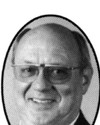Mr. Speaker, with its Bill C-22, the Liberal government is reviving the debate on what is now commonly known as the Pearson affair. However, the provisions contained in this bill take the debate one step further than a mere discussion on the sale of Pearson International airport. They bring to light one of the biggest flaws in the Canadian political system.
The Pearson airport issue, which may only be the tip of the iceberg, is a perfect example of the influence of lobbyists and various pressure groups on government decisions, which have the unfortunate tendency of always favouring special interests rather than the public interest.
It is important that Canadians finally realize what goes on behind the closed doors of their federal Parliament. In fact, it is the whole decision-making process that must be called into question. Right now, the most effective way to make your grievances known to the federal government is to hire a lobbying firm which, for a few thousands dollars a day, will put you in touch with the highest government authorities. Needless to say, only large corporations and very rich people can afford to hire a professional lobbying firm.
There is another effective means of establishing contact with the government in office, and it is, of course, by making a substantial contribution to the election fund of the party that will form the government. As for ordinary Canadians, after having had their say in the federal elections, they must now sit and wait to see how the government will manage its resources. People do not always realize that their vote does not carry much weight compared to the powerful corporations and the rich friends that the government will support during its term. The Liberals and the Conservatives have certainly helped to reinforce the image of lobbying as an obscure phenomenon.
But what is a lobbyist? The image that most people have is that of a mysterious individual who, in a dark corner, hands over a big envelope to a minister or a senior official to obtain some favour from the government. Unfortunately, reality is much more subtle than that since very often, the lobbyists who are active today behind the scenes are former ministers, deputy ministers or lawyers of political parties who, thanks to their contacts inside the government, are able to make the case of those who hired them.
Their work is made easier by the fact that, most of the time, their bosses contributed richly to the campaign fund of the party in power. The lobbyists' task is to remind the government of its political debts towards those interest groups. In fact, the real elected representatives, that is the hon. members of the government side as well as those from the opposition side, collectively get less of a hearing from ministers than any of those obscure professional lobbyists. That tells us a lot about their clout in the decision-making process of government.
About fifteen years ago, political analyst Stanley B. Ryerson argued that the Canadian federation had been formed in 1867 in response to the demands of some interest groups. If you allow me, I would like to quote what he said: "Macdonald and Galt were representing the general interests of English Canadian business circles".

